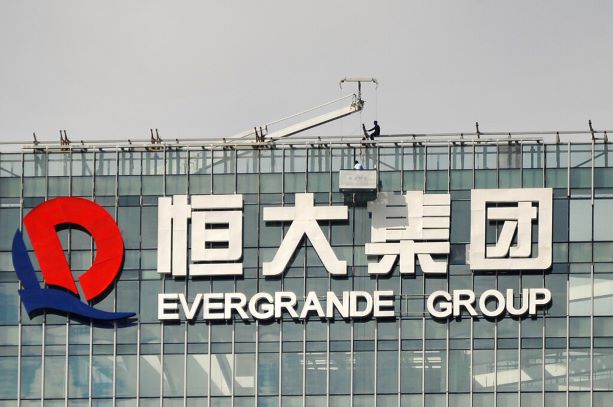
A company’s management and their leadership style exerts a huge influence on a company’s identity and culture. Some would argue that this could ultimately determine its path to boom or bust. Good company management is also a bellwether of how well a firm responds to evolving market requirements. For values-based investors, ‘G’ is one third of environmental, social and governance (ESG) investing.
We asked Vinay Agarwal, lead portfolio manager of the Gold-rated FSSA Indian Subcontinent Fund, about his process. In addition to the quality of the businesses, and the balance sheets of the stocks he considers, he has been paying close attention to the quality of a company’s management team in his investment process, according to Morningstar research.
Culture Constantly Evolves
It’s hard to price intangible factors like culture and governance, and the impact of these features takes time to unfold. In one case, Agarwal says he visited a company seven times in one year to be convinced that the firm was indeed changing.
Around three years ago, ICICI Bank (532174) was one of those companies in which Agarwal used to think he’d never invest. The reason was simple – whenever there was a problem in India’s banking sector, the bank was always part of it. The bank also faced allegations of corruption and poor governance, and fielded questions on its asset quality and balance sheet.
As of the end of August, ICICI takes up the biggest weight in Agarwal’s portfolio. “The turning point was bold changes that came after the appointment of the bank’s (current) CEO, Sandeep Bakhshi in 2018,” explains Agarwal, adding that the efforts from the management were more than forging a consistent tone between what it promises to external investors and what it communicates internally. He continues: “Bakshi comes to every meeting with two or three junior staff, such as a branch manager from a small city in India or a manager of a car and truck loan function. This is a small thing to do to pass on the message internally what are the expectations from the shareholders, instead of what they used to have, like fancy executive lunch.”
The Importance of Managing Risk
Furthermore, Agarwal says, ICIC Bank has controlled its loan book by filling it with diversified loan types, instead of just relying on the wholesale credit business. To Agarwal, it proves that ICICI has more appropriate risk management measures in place. The bank has moved on from the undesired risk-taking and aggressive expansion, which Agarwal saw as “burning its fingers many times due to regulatory issues”.
Additionally, the incentive program for employees is based on return-on-equity, rather than chasing pure growth. According to Agarwal, using the former indicator to measure performance reflects the better alignment of interests with shareholders. “Better awareness of risk management, the enhanced incentive scheme, and all the other changes in culture made the business more predictable,” he explains.
The position seems to have played out for Agarwal, the ICICI Bank shares rose 90.35% since the beginning of 2019. Despite a strong rally, Agarwal believes that there will still be significant re-rating potential for ICICI, as the market slowly realizes the firm is a much better bank than it was and its quality is as good as the country's largest HDFC Bank. HDFC Bank is the third biggest holdings in Agarwal's fund, representing 5.9% of assets as of the end of August.
Family Matters: Investing in Family-Run Companies
For long-term investors like Agarwal, family businesses that plan for multi-generational ownership would match the long-term goals of his funds. And if the companies have reasonable growth prospects and are managed by a good team, would be names that his portfolio would hold on to “forever”.
“If [the family-owned companies] are thinking in the right way, then they make the right decisions for the long term,” continues Agarwal. “In many cases, we often say the first-generation starts a business, the second generation builds on it and the third generation destroys it. That's not the case for the Godrej family,” says Agarwal. Today, the fourth generation of the Godrej family is at the helm. As of August, in his fund, Godrej Consumer Products (532424) and Godrej Industries (500164) take up 6.0% and 3.8% of the assets, respectively.
“You can tell that the Godrejs get [the way of running a family business] when they have a good prospecting culture internally and make the right decisions for the long term for all stakeholders.”
Having covered these stocks for the past 18 years, Agarwal has met the father of the current generation. There’s one thing both generations have in common. “The Godrej family are custodians of wealth that they created, not just for the family, but for all stakeholders, for the society, for their employees, for the shareholders, for the government, for the taxman, and for the environment”.
How to Buy a Family Business?
What’s the right governance and culture for a family-run business? Agarwal recommends asking these questions:
- Do the families think of the business as a listed company (where there are other owners in it)? Or do they act as sole proprietors and center their decisions only on the family’s interests?
- What’s the succession plan? Are their heirs only contenders for the CEO position?
- Are these family firms able to hire and retain good talent? Do they have a proper incentive system?
- Do these families carry a track record of keeping pace with changing times? Do they remain ahead of the curve?
©2021 Morningstar. All rights reserved. The information, data, analyses and opinions presented herein do not constitute investment advice; are provided as of the date written, solely for informational purposes; and subject to change at any time without notice. This content is not an offer to buy or sell any particular security and is not warranted to be correct, complete or accurate. Past performance is not a guarantee of future results. The Morningstar name and logo are registered marks of Morningstar, Inc. This article includes proprietary materials of Morningstar; reproduction, transcription or other use, by any means, in whole or in part, without prior, written consent of Morningstar is prohibited. This article is intended for general circulation, and does not take into account the specific investment objectives, financial situation or particular needs of any particular person. Investors should consult a financial adviser regarding the suitability of any investment product, taking into account their specific investment objectives, financial situation or particular needs, before making any investment decisions. Morningstar Investment Management Asia Limited is licensed and regulated by the Hong Kong Securities and Futures Commission to provide investment research and investment advisory services to professional investors only. Morningstar Investment Adviser Singapore Pte. Limited is licensed by the Monetary Authority of Singapore to provide financial advisory services in Singapore. Either Morningstar Investment Management Asia Limited or Morningstar Investment Adviser Singapore Pte. Limited will be the entity responsible for the creation and distribution of the research services described in this article.









.png)





.jpg)





